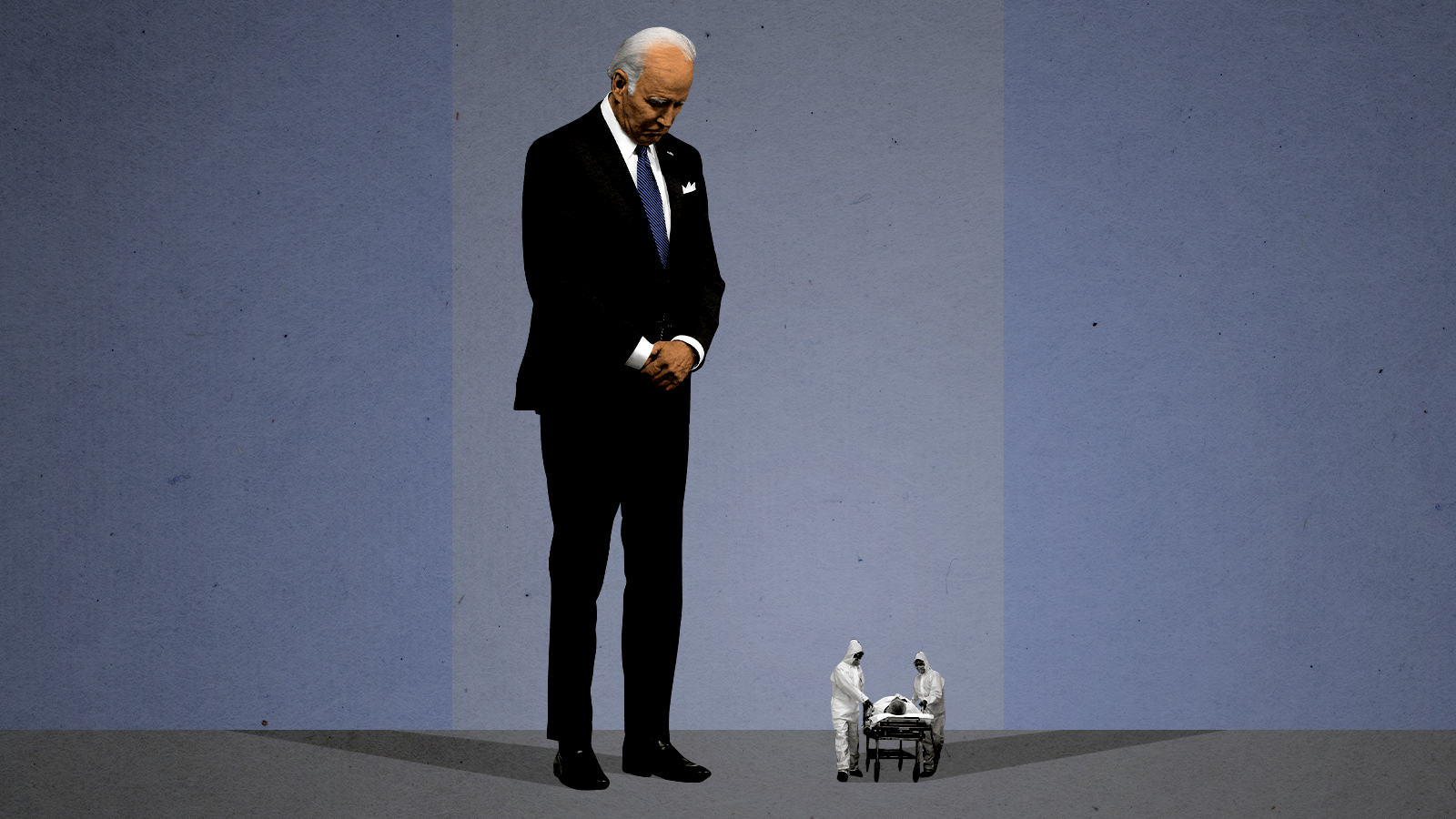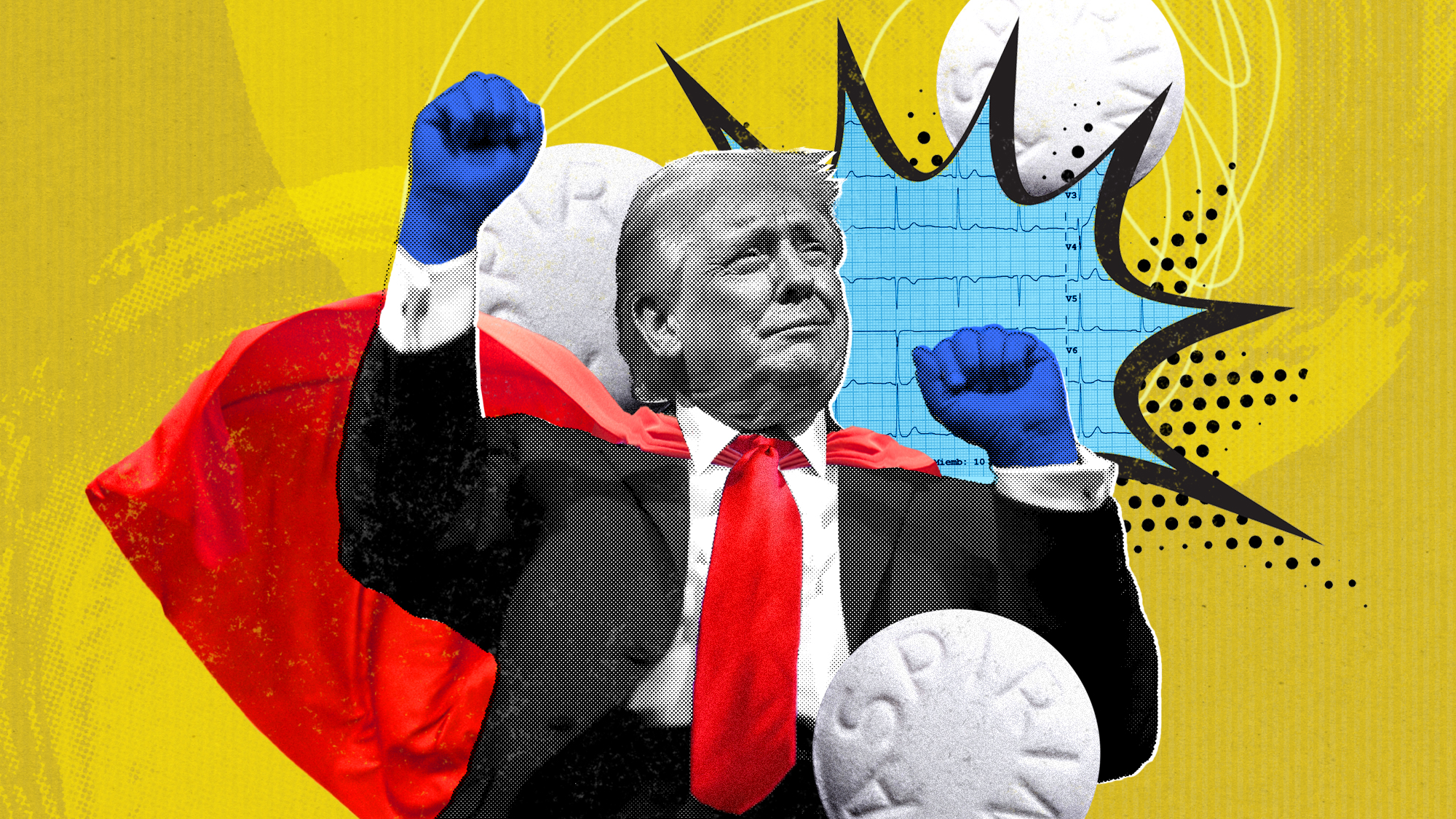COVID's still here. So, why isn't treatment free anymore?


A free daily email with the biggest news stories of the day – and the best features from TheWeek.com
You are now subscribed
Your newsletter sign-up was successful
For all the ways President Donald Trump botched in his response to the coronavirus pandemic — and boy howdy, was it a long list — let's give a wee bit of credit where credit is due. "The president has made it very clear," then-Vice President Mike Pence said in April 2020, "we don't want Americans to worry about the cost of getting a test or the cost of getting treatment" for COVID-19.
This week, that federal program is winding down due to Senate Republicans balking at the Biden administration's request for an additional $22.5 billion to continue the battle against COVID. That means if you're one of the 28 million Americans who are uninsured — and who for two years now could have taken at least some comfort in the fact that the White House was reimbursing providers for coronavirus-related care — you're now on the hook for associated testing and medical bills. If you also happen to be one of the 25,459 Americans to test positive for COVID-19 yesterday, that's pretty scary — not to mention, infuriatingly arbitrary.
But while "Medicare for all" tends to be treated as a tentacle of America's socialism boogeyman, Trump's (CARES) Act was essentially "Medicare for COVID," Princeton University economist Janet Currie told Quartz in April 2021. That is to say, COVID-19 became a kind of mini-experiment in what it would be like to not have the ax of medical debt hanging over your head if you needed specific-to-COVID care.
The Week
Escape your echo chamber. Get the facts behind the news, plus analysis from multiple perspectives.

Sign up for The Week's Free Newsletters
From our morning news briefing to a weekly Good News Newsletter, get the best of The Week delivered directly to your inbox.
From our morning news briefing to a weekly Good News Newsletter, get the best of The Week delivered directly to your inbox.
By no stretch of the imagination was it a perfectly implemented program. Also problematic: There was no requirement to tell patients upfront that their COVID treatment would be covered, leading many uninsured would-be patients not to seek care (and in extreme cases, even die as a result). But the program's shortcomings only serve to emphasize how vital it really was: Indeed, "in the U.S., we are so accustomed to paying out of pocket for essential health care that when it is provided for free, it is a foreign concept," The Nation wrote this winter, noting that at the time, a "significant barrier to vaccination [was] that some people think they will be charged for it."
Still, there will be plenty of people who shrug off the end of the program, especially since vaccinated people are so unlikely to go to the hospital (and thus accrue crippling medical bills) for COVID. True enough, the vast majority of people who will go bankrupt due to catching COVID, or die failing to seek prohibitively expensive treatment, will likely be anti-vaxxers. But that's far from a reason not to care, or fight for the program's continuation: "We don't use the medical-care system as a way of meting out justice," Matt Wynia, a doctor and ethicist at the University of Colorado, previously explained to The Atlantic. "We don't use it to punish people for their social choices." Neither should financial punishment be meted out to those who catch a contagious disease, no matter what their beliefs.
But even more than that, the takeaway from our brief period of Medicare-for-COVID ought to be how easy it was to do once politicians decided they actually wanted it. Don't let anyone tell you universal healthcare isn't possible; we've already had a taste.
A free daily email with the biggest news stories of the day – and the best features from TheWeek.com
Jeva Lange was the executive editor at TheWeek.com. She formerly served as The Week's deputy editor and culture critic. She is also a contributor to Screen Slate, and her writing has appeared in The New York Daily News, The Awl, Vice, and Gothamist, among other publications. Jeva lives in New York City. Follow her on Twitter.
-
 Why is the Trump administration talking about ‘Western civilization’?
Why is the Trump administration talking about ‘Western civilization’?Talking Points Rubio says Europe, US bonded by religion and ancestry
-
 Quentin Deranque: a student’s death energizes the French far right
Quentin Deranque: a student’s death energizes the French far rightIN THE SPOTLIGHT Reactions to the violent killing of an ultra-conservative activist offer a glimpse at the culture wars roiling France ahead of next year’s elections.
-
 Secured vs. unsecured loans: how do they differ and which is better?
Secured vs. unsecured loans: how do they differ and which is better?the explainer They are distinguished by the level of risk and the inclusion of collateral
-
 Big-time money squabbles: the conflict over California’s proposed billionaire tax
Big-time money squabbles: the conflict over California’s proposed billionaire taxTalking Points Californians worth more than $1.1 billion would pay a one-time 5% tax
-
 A running list of everything Donald Trump’s administration, including the president, has said about his health
A running list of everything Donald Trump’s administration, including the president, has said about his healthIn Depth Some in the White House have claimed Trump has near-superhuman abilities
-
 Did Alex Pretti’s killing open a GOP rift on guns?
Did Alex Pretti’s killing open a GOP rift on guns?Talking Points Second Amendment groups push back on the White House narrative
-
 Washington grapples with ICE’s growing footprint — and future
Washington grapples with ICE’s growing footprint — and futureTALKING POINTS The deadly provocations of federal officers in Minnesota have put ICE back in the national spotlight
-
 Trump’s Greenland ambitions push NATO to the edge
Trump’s Greenland ambitions push NATO to the edgeTalking Points The military alliance is facing its worst-ever crisis
-
 Why is Trump threatening defense firms?
Why is Trump threatening defense firms?Talking Points CEO pay and stock buybacks will be restricted
-
 ‘The security implications are harder still to dismiss’
‘The security implications are harder still to dismiss’Instant Opinion Opinion, comment and editorials of the day
-
 House approves ACA credits in rebuke to GOP leaders
House approves ACA credits in rebuke to GOP leadersSpeed Read Seventeen GOP lawmakers joined all Democrats in the vote
